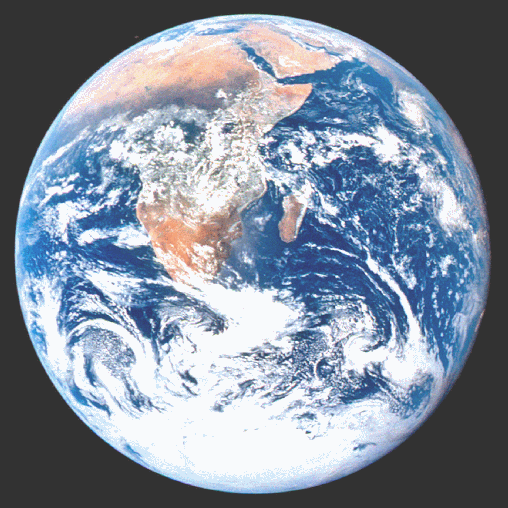 |
  |
 |
|
updated: September 24, "2006"
Past
Impacts / Near Misses / Future Approaches |
|
.  What's New
& Previews
Jimi's
Prediction —
A Remote View About Jimi Hendrix Timeline Blog Asteroid Impact Evolution Woodstock Blues Jimi Code VS. Da Vinci Code Credit Thefts Missile Agency/Moon Base Charade Remote View Mutation Seattleland Censorship Events Skewed Science Search Engine Rankings Download An Ad AT&T: New Nuremberg Wall(y)flower Syndrome Rochester Media DVD/CD Store More Links...  .
Page 1 of 8
.
"We
have not searched for them all [asteroids], we only know a small
fraction of the ones that exist, and...those particular ones are not
going to hit any time in the next 100 years or so, which is
about as far as we can reliably calculate the orbits, but the
other 90 percent that we haven't found yet could hit any time."
- Clark Chapman, Planetary Science Institute,
PBS Nova "Doomsday Asteroid" 10/31/95
"A comet can have the hiccups, and those hiccups can change its course in space. Scientists say comets that suffer hiccups are those that emit bursts of gas, these bursts act like jets and alter the comet's orbit." - Discovery "Impact: Could It Happen?" 5/4/98
"Collisions
can launch large asteroid chunks into unstable orbits that
move them into collision courses with our planet. In some
places, asteroids experience traffic jams. It's possible some of these
asteroids eventually will move onto an Earth-collision trajectory."
- William Bottke, Cornell U. astronomer, CNN
News 6/28/00
"Computer
models used to study numerous asteroid belt bodies…lent support to the
idea that the heated bodies experienced altered orbits.
Many of the fragments seem to have been swept into narrow chaotic zones
known as resonances, where tiny gravitational kicks produced
by nearby planets such as Mars, Jupiter, or Saturn can push asteroids
out of the asteroid belt."
- Science Journal 11/23/01
"Let
us say an [asteroid] would have been discovered...after discovery, we
would not know for quite some time (perhaps weeks, months or years)
whether or not the object would actually hit the Earth. In
fact, the impact probability might go up to 50% before plunging to 0%
[or vice versa].
- Geoffrey Sommer, RAND - SpaceDaily.com 2/17/03
"The gravitational influence of the giant gas planets, like Jupiter, or an impact by a comet, can knock these large rocks out of their safe orbit." - About.com 9/2/03
"The largest asteroid ever known...Toutatis's orbit changes slightly with each 4-year trip around the sun. 'Because of the nature of the orbit, we cannot predict thousands of years into the future for this object,' said Alan Harris, a senior research scientist at the Space Science Institute…some rumors have suggested the asteroid's forecasted course might be off by enough to cause a collision with Earth…'The actual path of it has indeed varied a bit from the original calculated,' Harris said." - Space.com 9/28/04
"Orbits change with time because of gravitational tugs by the Sun and planets, among other factors...the 323-day orbit of asteroid 2004 MN4 lies mostly within the orbit of Earth. Scientists cannot say that the asteroid will never hit Earth." - Space.com 12/27/04
"If an object is on a collision course with Earth, due to hit in say a half a century or a century...we won't really know that until we get within perhaps a decade of the collision." - Steve Ostro, Radio Astronomer, NASA JPL -
Science of the Impossible – TLC 7/12/98
IN OTHER WORDS, THE ABILITY OF SCIENTISTS TO PREDICT THE PATH OF ANY SPACE ROCK IS EXTREMELY LIMITED. COMETS AND ASTEROIDS ALTER THEIR PATHS AT RANDOM IN RESPONSE TO MANY FORCES IN SPACE.
.
.
|
| © 2006 First Century Press. All Rights Reserved. Contact Us |
